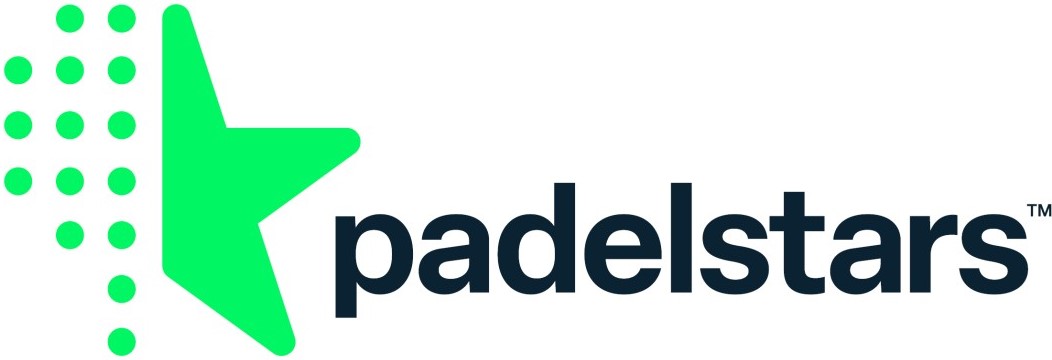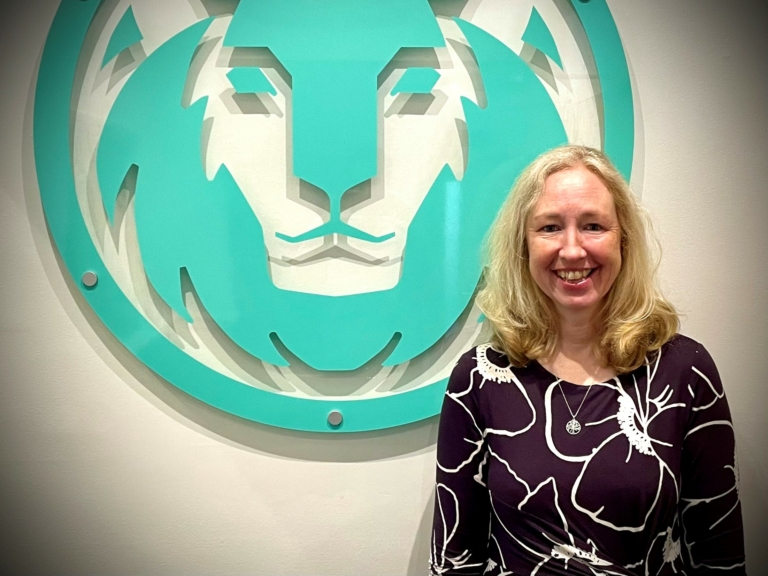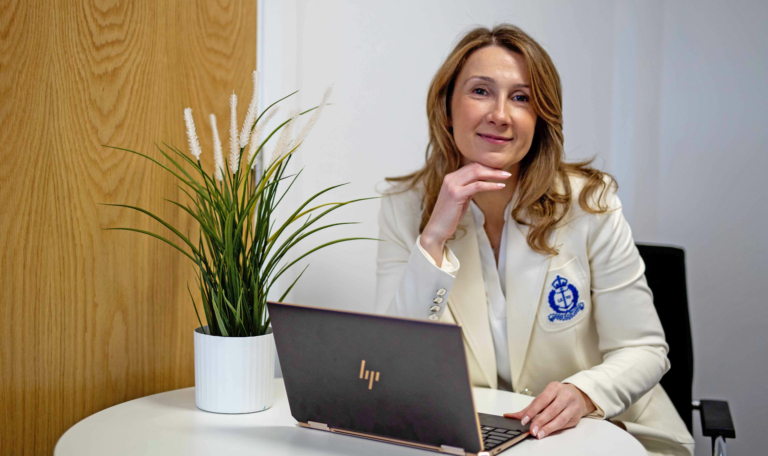Growing a tech company

The Business Magazine hosted this roundtable event at the Royal Berkshire Conference Centre at Reading’s Madejski Stadium. Tim Wickham reports on the discussion.
Roundtable chairman David Murray, publisher of The Business Magazine, opened proceedings by emphasising the importance of the tech sector. It is growing faster than the overall UK economy and investment in the sector is at record levels, especially from overseas. Digital technology turnover in the greater Reading area is estimated to be around £13.6 billion with the sector employing around 58,000 people locally.
Nevertheless, Thames Valley tech businesses face plenty of challenges as they grow. A group of The Business Magazine Tech Awards’ winners and finalists shared their experiences of building successful ventures with some of the Awards’ sponsors.
What has made you a winning company in your field?
In Cloud Solutions founder Caroline Atkinson said being customer centric was key to the success of the SAP platinum partner company. “It’s about creating trust and integrity as a software provider. It’s also about being able to say ‘no’ to customers if you need to. We offer Software as a Service (SaaS) so customers can always go elsewhere. Employing the right employees and consultants is also key.”
Define your niche and dominate it is the approach of FISCAL Technologies, which develops forensic audit software. CEO explained: “We looked at how the market was segmented and aimed to be a world leader in what we do. We put customers at the heart of our business. For example, we hold an annual customer conference to learn from them and keep iterating our products based on their views. We’ve also done things our advisers said we shouldn’t do – like expanding in the US and offering customers a three-year upfront charge rather than charging annually. We’ve achieved 30% annual growth.”
ScopeMaster founder Colin Hammond said the tenacity to innovate is essential in building his business. The company has developed a cloud-based tool for improving the quality and delivery of software projects. “We are combining old techniques with new methodologies to measure and find defects in software. Our ‘eureka’ moment was finding a way to fix defects in poorly written software code before it is released so your customers save time and money later on putting things right.”
As a start-up, ScopeMaster lacked customers as reference points to attract business. “Instead, we sought out thought leaders and industry stalwarts for their opinions on what we are doing, which provides a reassuring endorsement to prospective customers,” added Hammond.
Andrew Barnett explained that FliteTrak’s success in remote monitoring systems is driven by three things. “Creativity, innovation and MVP (minimum viable product),” he said. “We developed our basic product and then engaged with a partner to take us to the next phase. We didn’t want to waste money on innovative stuff that wouldn’t be used, so we took our MVP to customers to find out what was right and wrong about it – we didn’t assume we knew. It means we are bringing customers along with us, not just selling to them. For example, we thought airlines would be interested in seat belt closure and mobile phone use, but many were more interested in air quality monitoring and passenger weight.”
Tech start-up Limbick Labs is creating a survey tool to help capture how people feel using animated emoji, for areas such as customer experience and mental health. Nick Holland said the company is busy looking at how other businesses have developed. “A key factor to success is empathy, with staff and customers, and it has to start with the leaders at the top. If you look after your staff they will look after your customers – that can be the difference between good and great.”
MCS Rental Software entered a relatively mature industry sector. Guy van der Knaap commented: “We do two things differently from our competitors. First, we introduced a subscription model rather than the traditional perpetual model for software rental. It took us about three years to introduce this and some customers weren’t happy at first, but it has been a real boon for us. The second was developing a configurable product that can be used relatively easily and at relatively little cost in other countries, including France, the Netherlands and Germany. We are now focusing on getting overseas businesses off the ground by being perceived as a local company in those countries.”
Toby Crawford said Imaginera takes advantage of the preference of reinsurance companies to stay lean in terms of headcount by outsourcing their software development. “Reinsurance typically has low transactional volumes that are high value and high complexity. There is a lot of product innovation and a desire for bespoke software. Our success has been based on taking the time to really understand reinsurers’ businesses so we offer what they need.”
Helping businesses enter the space age is driving Open Cosmos, which has launched one satellite and is planning more. Aleix Megias Homar said: “The use of small satellites is a growing market. But companies have to overcome three major barriers to access space: technology, regulatory frameworks and cost. We have put together a set of products and services that make space more affordable and simplifies the whole service delivery. We have a laser-like focus on customer needs by mass-customising satellites for different data sets and payloads. We are building strong relationships with our customers.”
Funding options
Would companies grow faster with access to more cash? Barclays’ Lee Atkinson pointed out that it depends on what stage a company is in its lifecycle as to whether its an angel investor, venture capitalist, private equity or bank debt. Jonathan Caswell at private equity specialists LDC said: “We tend to invest in companies that have already developed a good product. As an investment partner we help them to scale up and accelerate growth, for example, organically or through acquisition, and into new geographies.”
Griffiths said: “FISCAL Technologies is self funded. I’ve spoken with business owners who took private equity early and think they tend to be more focused on finance than on their customers. We are going through our own private equity considerations at the moment and about 25% of my time over the past six months has been taken up jumping through hoops.”
Like FISCAL, Imaginera is self-funded. “We have made a profit from day one. Phase one for us was building our cash reserve to fund phase two, which we are now entering,” said Crawford.
Laura-Jane Turner from IT solutions provider Centerprise noted: “I think there is a ‘lost middle’ section of small and medium-sized companies where funding is harder to find. Since working for East Midlands Development Agency I haven’t seen any massive change in the challenge of helping entrepreneurial businesses to continue growing.”
Gareth Davies at Grant Thornton agreed with Turner that there appears to be a gap in the £1 million-£5m bracket for funding small businesses in the UK. The private equity and venture capital models are different. Private equity companies like to invest in established businesses, with a demonstrable track record. Venture capital companies, with an early stage focus, often bring in high-net-worth individuals as co-investors. The VC model is a higher volume play with added risk.”
Rob Hayes of Penningtons Manches was surprised by the suggestion that there was a funding gap in the £1m-£5m bracket. He said that recent data from Beauhurst showed that two of the top four most prolific VCs are active in this space. It may be a regional issue and these tech-focused VCs tend to focus on cities such as London, Cambridge and Oxford rather than the wider Thames Valley.
Simon Staples of law firm Blake Morgan noted: “There is an active venture capital investment scene (for example in/around Bristol) which can provide funding at £5m or below. The same funds will look at Thames Valley tech companies.”
“Private equity in the UK is super conservative,” observed Griffiths. In contrast, “US venture capital companies tend to be less risk averse. Many are looking at UK assets to invest in,” noted Davies.
The need for validation of your business can be met with the evidence of steady organic growth, said Holland. “If the timing of a product is critical, then you’ll need to look at getting investment or grants early on.”
Hammond highlighted the potential and pitfalls of seeking Enterprise Investment Scheme (EIS) funding. “I came across a possible angel investor who appeared interested in us for tax savings through an EIS. But they hesitated – it’s hard to persuade people,” he said.
If finding suitable funding is a challenge, tackling the necessary paperwork can be an added headache. Barnett compared the “nightmare of paperwork” needed to obtain funding from Local Enterprise Partnership (LEP) with the relative ease of sourcing funds from the National Aerospace Technology Programme (NATEP). “And with the LEP you have to capitalise the funding which restricts it to things like purchasing assets. For NATEP, you can include intangible costs like man hours.”
Branding the Thames Valley
Success for tech businesses in the Thames Valley could be held back by a lack of vision for the region. Clarke said: “It can be hard to get funding in the Thames Valley. People don’t see the great innovation going on here. We lack physical locations, where businesses can discuss ideas and collaborate. Co-working space in Reading is charged at London prices – it’s too expensive for start-ups.
Hayes agreed that the area could do more to boost its appeal and identity to entrepreneurs and investors. He commented: “The Thames Valley is a pretty nebulous region made up of very different economies and, as a result, this could be a factor in diluting the ‘tech identity’ of certain parts of the region. From spending time in our San Francisco office, there is definitely a focus on the ‘golden triangle’ cities, Oxford, Cambridge and London,” he said.
Clarke warned: “The Thames Valley risks sleepwalking into obscurity.”
Rowan Turrall at lawyers Boyes Turner was more positive. She thought more new funding was coming in to the Thames Valley. And Moore Stephens’ Nigel Honnor highlighted developments like the Thames Valley Science Park that offers support to entrepreneurs.
Finding talent
Finding the right talent is another challenge for growing businesses in the region. Crawford said: “Recruitment is the sole inhibitor to our growth. I don’t think it’s just the Oxford area, finding good software developers is a national problem.”
Both Holland and van der Knaap said their businesses also experience similar difficulties. Davies thought it was difficult for the Thames Valley to entice skilled people away from London.
Barnett said FliteTrak aims to engage early with potential recruits. “We spend time with students at universities and colleges. We want to capture their creativity and engagement, but it’s hard work. Universities tend to be more interested in how we can support them, rather than the other way round. I also think curriculums are going in the wrong direction – universities don’t engage with business to find out what skills they need.”
Hammond said he made sure ScopeMaster recruited “dream teams” by spending a lot of time finding the right people for its software development team. “I cherry-picked the team I wanted who have a blend of creative and engineering disciplines,” he said.
Griffiths said FISCAL plays to its strengths to attract talent away from bigger players. “There are plenty of disillusioned people working for large companies who want to move on. They are looking for a different lifestyle with more meaningful work, which is what we can offer them.”
Megias Homar added: “At Open Cosmos we’’ve put together a great team with a passion for space. The bottleneck for our growth is finding hardware and software developers who specialise in the space sector. We started the business in London and continue to attract people now we have moved to Harwell Campus.”
Recruitment is less of a challenge for In Cloud Solutions, but attracting graduates isn’t easy. Caroline Atkinson said: “We are not an innovator company so it can be harder for us to attract software developers. I’m interested in what has been said about working more closely with universities.”
ConnectTVT has a range of talent initiatives with one of them focusing on people who are looking to re-launch their careers. “They often want part-time work and we can struggle to find them employment, despite these types of candidates showing great loyalty to employers and being a viable solution to some of the skills gaps,” noted Clarke.
Growth challenges
MCS Rental Software is expanding into new geographies. “So the challenges for us are around culture in different countries,” said van de Knaap.
Product marketing is the current focus for ScopeMaster. “We’re lucky that English is the language of software. We’ve been asked to translate our software into Chinese, but we’d probably never see it again. You have to protect your IP,” said Hammond.
Limbick Labs is looking at pricing models. “We’ve seen a competitor use individualised pricing for over 125 countries. It takes time and effort, but we believe this type of structure will be worth it for us,” said Holland.
AI OK?
Machine learning, cognitive computing and AI dominate the technology landscape. The participants discussed where AI is taking them. Griffiths said: “Without machine learning you are pretty much dead in the water. We are working with experts at Royal Holloway and the University of Reading on AI. Tech is developing very quickly, so it’s essential to know how AI can support your business.”
Barnett observed: “The internet of things is part of what we do. With AI, our challenge is to keep technology focused on what we need so we maximise its business-value potential.”
Crawford said: “We are researching products focused on cloud-based solutions, big data and machine learning. Our clients have amassed enormous quantities of data that they aren’t yet getting value from. We are looking at ways to unlock that value in the data being collected.”
R&D tax credits
The Government offers entrepreneurial businesses a range of tax breaks, but are they being used?
Caroline Atkinson is a keen advocate of research and development tax credits. Griffiths said they had “been brilliant” for FISCAL, while Hayes was “staggered that some companies haven’t heard about them”.
Davies questioned why despite the UK tax system helping tech companies with R&D credits, relatively few businesses have made the leap from being small to big tech players. “Entrepreneurs seem to build a company up in a five to 10-year timeframe, then move on.”
Griffiths said: “I think the Googles and Facebooks of this world usually receive venture capital funding early on without having to give up equity. That’s how unicorns (start-ups valued at more than $1 billion) grow.”
Hayes added: “In the US, there is a very different outlook on funding strategies. In the US, it is commonplace for start-ups to receive cheque sizes to cover a five year business plan, whereas, in the UK, it’s more likely to be two to three years. The US model allows management to focus on developing technology as opposed to being a perennial fundraiser and focusing on cashburn.”
Clusters and a louder voice
Is the Thames Valley behind in nurturing networks and business clusters for smaller entrepreneurial businesses?
Clarke said: “I’ve been involved with other UK clusters that included councils and are collectively stronger when going for larger amounts of government funding. In the Thames Valley I don’t think we have such strong business ecosystems. We are all doing our own thing and don’t have a ‘noise making’ machine. It means a lot of funding is going to the north and south west. Businesses in the Thames Valley need to pull together and address the challenges of attracting funding to the region.”
The observation was supported by Turner. “I’ve struggled to find business networks. When I worked in the East Midlands, access to funding and incubation/meeting spaces was easier to find. All the ingredients are here, but we are not putting them together,” she said.
“The Venturefest initiative which works to bring together investors and businesses works well,” said Staples. While Hayes noted: “Cities like Bristol and Oxford are fairly self contained and, as such, it is easy to identify what the tech USP of those cities is, but the Thames Valley is a harder area to define from a tech perspective due to the contrasting make-up of the region.”
Lee Atkinson said Barclays Eagle Lab has space available at Thames Valley Science Park that technology businesses can use for events, often without charge. “We continue to encourage as many local entrepreneurial businesses to visit the incubation and work space to find out more about what is available,” he commented.
Murray closed the Roundtable by saying The Business Magazine would investigate setting up a regular forum for technology companies to share ideas and information.
Participants
Caroline Atkinson: Business development director, In Cloud Solutions
Lee Atkinson: Relationship director, Barclays
Andrew Barnett: Founder and joint managing director, FliteTrak
Jonathan Caswell: Origination director, LDC
Louize Clarke: Founder, ConnectTVT
Toby Crawford: CTO, Imaginera
Gareth Davies: Corporate finance, Grant Thornton
David Griffiths: CEO, FISCAL Technologies
Colin Hammond: CEO and founder, ScopeMaster
Rob Hayes: Partner, Penningtons Manches
Nick Holland: Founder, Limbick Labs
Nigel Honnor: Senior sales executive, Moore Stephens
Aleix Magias Homar: Director, head of missions, Open Cosmos
Simon Staples: Corporate partner, Blake Morgan
Laura-Jane Turner: Director, business development, Centerprise International
Rowan Turrall: Senior associate, Boyes Turner
Guy van der Knaap: Managing director, MCS Rental Software
David Murray: Founder and publisher of The Business Magazine, chaired the discussion














